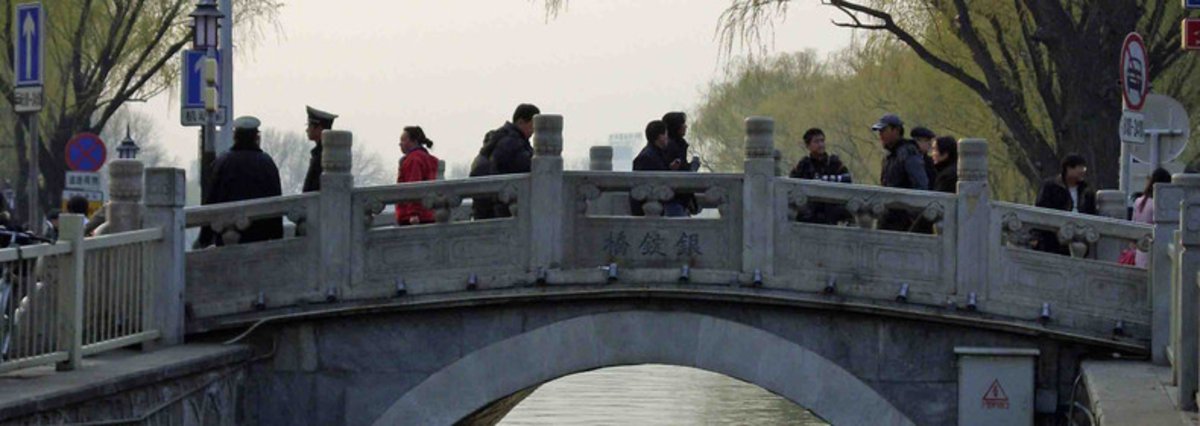Ambivalent Civism: Evangelical Youth, Public Commitment, and Moral Conservatism in Taiwan
Juliette Duléry
In the 1990s, Protestant communities in Taiwan underwent a religious revival. This shift in the national Protestant landscape was not unique to the country, but rather started in the United States the same decade, during what became known as the “charismatic third wave.” Compared to its predecessors, what characterized this “renewal” was its emphasis on achieving socio-political transformation. The theocratic goal of this movement is to conquer the world and bring the end times, in order to establish the Kingdom of God on earth (Gagné 2024).
In Taiwan, this revival took place during the period of democratization that followed the end of the martial law era. The country’s policy of religious laisser-faire (Laliberté 2009) benefitted the evangelical and charismatic movements, which, through their connection to transnational networks from South Korea, Singapore, and the United States (Rubinstein 1991; Iap – Sween 2015; Yang et al. 2017; Huang 2017; Lin 2020), gained influence in the country’s religious and political landscape. Indeed, although only 5.5% of the Taiwanese population is Protestant (Academia Sinica 2019), these believers are over-represented in middle and upper classes, and therefore have both direct and indirect influence over the debates and public policies of the country (Zhai et al. 2011). Moreover, charismatic and evangelical churches have attracted an increasing number of new believers in recent decades. Part of their success resides in the deep and individual relationship with God they promise to their believers (who are called to receive “spiritual gifts” such as speaking in tongues, healing prophecies, deliverance from demons). Another key factor lies in their adoption of growth and marketing techniques, helping them to retain and mobilize believers.
[more…]
Adaptation of Religion – A Tool for Control, Fostering or Something Else?
Fredrik Fällman
“Adaptation of religion to socialist society” (zongjiao yu shehuizhuyi shehui xiang shiying 宗教与社会主义社会相适应) has been a policy in the PRC at least since the 1990s when Jiang Zemin first formulated what has been called “three sentences on religious work” (1993), later with an added fourth (2001). These four are the above-mentioned adaptation, the implementation of freedom of religious belief, the strengthening of leadership on religious work, and to insist on the principle of independence. It should be noted that “religious work” (zongjiao gongzuo 宗教工作) does not mean any activity by a religious group, but is the term for Communist Party (CPC) ideological work on religious issues. In the late 1990s and early 2000s, also under Hu Jintao, there was a stress to promote patriotism, reduce tension between believers and non-believers, play down (danhua 淡化) religious teachings that are “not in harmony with the development,” and to promote the “best traditions” (youliang chuantong 优良传统) of religions. Hu Jintao in 2007 also stressed the “positive function” (jiji zuoyong 积极作用) of religion.
[more…]
Wang Weifan (1927–2015): Theologian, Intellectual, Artist
Monika Gaenssbauer
In Wang Weifan 汪维藩 we meet a unique theologian, a free spirit deeply rooted in traditional Chinese culture, and a gifted poet and calligrapher. Wang is known in China not only as the author of spiritual texts. He dealt with China’s early encounters with Christianity, investigated the effects of political campaigns from the 1950s to 1960s, and courageously voiced criticism where he recognized undesirable developments in his church.
Wang was born in 1927 in Taizhou, Jiangsu. His mother was a devout Buddhist. Wang lost his father when he was seven and his mother when he was 17. On his deathbed, Wang’s father, who had been an opium addict, asked Wang’s mother to take her own life and the life of his son. The father was worried that they wouldn’t be able to get by in life. But the mother acted against his will. Wang Weifan has often described the deep love of his mother that made him feel the love of God. Later experiences during the Sino-Japanese war tragically drove her to suicide.
[more…]
Life Education in Contemporary Greater China – Are Religions Back as Players in Public Education?
Esther-Maria Guggenmos
In the past 20 years, the subject “Life Education” (shengming jiaoyu 生命教育) has become an optional standard in secondary schools in Taiwan; official textbooks on Life Education can be found at the National Textbook Library, and a research center on Life Education at National Taiwan University has been set up and publishes an in the meantime established Journal of Life Education. Religious agents have become self-confident in assisting the general development of the subject. How can one describe this emerging subject and its regional differences? How can it be historically contextualized? In how far does it relate to religion? And are religious organizations playing a role in its establishment? These are the questions of a new research project at Lund University, the first steps of which Esther-Maria Guggenmos introduced in her paper.
[more…]
Breaking Barriers: Women, Education, and Evangelization in Kulangsu International Settlement
Huang Zhicang
In the 19th century, the Qing dynasty faced numerous crises stemming from both interior regions and coastal areas. Internally, the dramatic increase in population from last century fuelled emigration and heightened societal tensions, presenting considerable governance challenges. Externally, the late 18th century marked the beginning of an escalation in the opium trade along the coastlines. The expansion caused multiple confrontations with foreign powers, culminating in the Opium Wars. The aftermath of these conflicts resulted in China becoming more open to foreign influences and decriminalization of missionary activities within the country. A succession of agreements continuously reshaped the religious rights in China. The Treaty of Nanjing indirectly contributed to the spread of Christian doctrines. The Huangpu Treaty granted Western powers the rights to engage in missionary activities in China and to establish churches in coastal port cities. Furthermore, the Treaty of Tianjin expanded these provisions, allowing Christianity to be freely disseminated throughout the inland territories of China and mandating non-interference by Chinese officials with missionaries. The advocacy and support of Western powers, churches, and governments behind missions to the East contributed to the rapid development of Christianity in China.
[more…]


